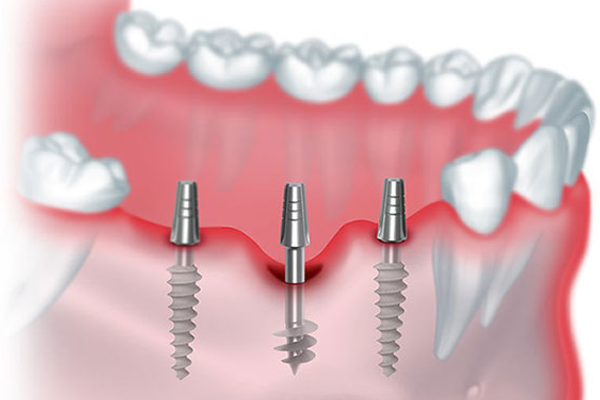

Basal implants in dentistry have emerged as a revolutionary solution for patients with insufficient bone in their jaw. This innovative technique allows individuals who were previously deemed unsuitable for traditional implants to regain their dental functionality and aesthetics.
Basal implants, also known as cortical load-bearing implants, are a type of dental implant that are used in certain cases where traditional implants cannot be placed due to inadequate bone volume or quality.
When considering your suitability as a candidate for basal implants in dentistry, several factors need to be taken into account:
There are some disadvantages associated with basal implants:
Procedure:
The procedure of basal implants involves a comprehensive and meticulous approach to dental restoration. This procedure is conducted by experienced oral surgeons who specialize in implantology.
Oral examination:The first step in the procedure is a thorough examination and assessment of the patient’s dental condition. This involves evaluating the quality and density of the jawbone. X-rays and scans may be taken to obtain a clearer picture of the jawbone structure.
Treatment plan: Once the suitability for basal implants is determined, the next step is to develop a customized treatment plan. This includes deciding the number of implants required and the optimal placement positions based on the patient’s specific needs. The treatment plan takes into consideration factors such as bone quality, aesthetic requirements, and functional demands.
Pre-operative procedures: Prior to the implant surgery, the patient may undergo various preparatory procedures, such as the extraction of remaining teeth or bone grafting if necessary.
Implant surgery:The actual implant surgery is performed under local anaesthesia or conscious sedation, ensuring a comfortable and pain-free experience for the patient. The oral surgeon makes small incisions in the gum tissue to expose the underlying jawbone. Then, they carefully place the titanium basal implants into the denser areas of the bone. After the implants are inserted, the gum tissue is sutured back into place, allowing for proper healing and integration of the implants with the jawbone.
Prosthesis: Once the healing period is complete, the customized prosthetic teeth or dental bridges are attached to the implants.
Follow up:Regular follow-up appointments with the oral surgeon are necessary to ensure the success of the basal implant procedure. These visits allow for the monitoring of healing progress and the adjustment of the prosthetic teeth, if needed.
Post operative care:
Post-operative care of basal implants is crucial for ensuring successful healing and optimizing the long-term outcome of the implant surgery. One of the primary aspects of post-operative care is to adhere to the prescribed medication regimen provided by the oral surgeon. This may involve taking antibiotics to prevent any potential infections and pain medications to manage any discomfort or pain.Patients are advised to gently brush their teeth using a soft-bristle toothbrush and a mild, non-alcoholic antimicrobial mouthwash. It is important to avoid any strenuous activities or behaviours that could put pressure or strain on the implant site. This includes refraining from smoking, as tobacco use can interfere with the healing process and increase the risk of complications. patients should avoid consuming hard foods or objects that may cause injury to the implant area. Regular check-ups with the oral surgeon are essential for monitoring the progress of healing and ensuring the implant is integrating well with the jawbone.
SKM Dental Clinic is widely regarded as one of thebest options for dental implants due to its
exceptional qualities and expertise in the field.Firstly, the clinic boasts a team of highly skilled and experienced dentists who are well-versed in allaspects of dental implantprocedures. These professionals are dedicated to providing top-notchcare and consistently stay updated with the latestadvancements in dental implant technology. Moreover, SKM Dental Clinic is equipped with state-of-the-art facilities and cutting-edge equipment that ensure precise and efficient implantprocedures. This high-tech infrastructure allows for accurate diagnosis, thorough treatment planningand successful implant placement, leading tooptimal results and patient satisfaction.Another significant factor that sets SKM DentalClinic apart is its commitment to patient comfortand safety. The clinic prioritizes personalized careand ensures that each patient receivesindividualized attention throughout the implantprocess. The dental team carefully explains thetreatment options, addresses any concerns, andensures that patients feel relaxed and well-informed.In addition to their expertise and advancedfacilities, SKM Dental Clinic maintains a rigoroussterilization and hygiene protocol. This strictadherence to cleanliness and infection controlmeasures ensures the safety and well-being ofevery patient. The clinic also follows ethical practices and transparent pricing policies,establishing trust and credibility among its clientele.Furthermore, SKM Dental Clinic has garnered astellar reputation for its impressive success rateand long-term durability of dental implants